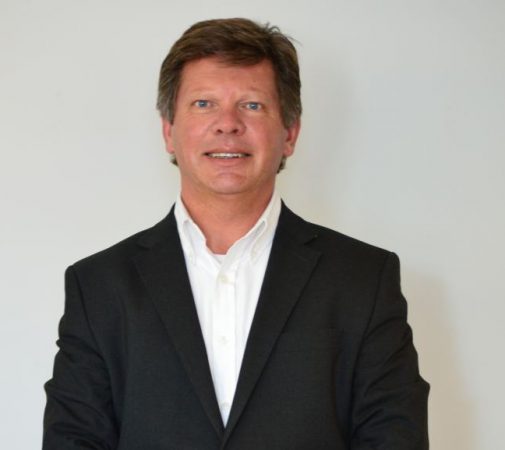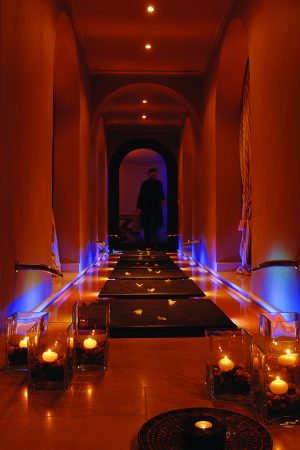Solambiente: Spa construction for hotels
From its base in the Algarve, ASPA/Solambiente is today a leading international player in the creation of spas for luxury hotels and resorts around the world.
It all started with Solambiente, a family business launched in the Algarve in 1983 offering solar pool heating. Now, 35 years later, associate company ASPA is one of the top three companies in the world specialising in spa construction for the hotel industry.
ASPA/Solambiente has planned and built over 100 spas in 15 different countries over the years and currently has 11 projects underway in Portugal and some 10 around the world. Fifty-one-year-old CEO Martin Goldman, the youngest son of the late founder Bob Goldman, joined the family business in 1991, returning home to Portugal after completing his studies.

Martin Goldman
In 2005, he created his first spa, at Vila Joya in the Algarve, and went on to spearhead the company’s international expansion. “We like to think out of the box when planning our spas and we love a challenge,” said Martin.
His concept of the Wellness Temple™ is based on a philosophy of constant innovation allying design, architecture and technology to health and wellbeing. “The spa industry is growing at an exponential rate,” he told us, and his company’s track record is ensuring a growing number of new projects.
The company employs a multi-national team of 26 in the Algarve, covering various disciplines in order to respond to their clients around the world which include the likes of Sheraton, W Hotels, Marriott, JW Marriott and Hilton group hotels.
After completing the Vila Joya spa, the word quickly spread with national projects such as the Seven Spa at the Hilton Vilamoura, the Bayan Tree Spa at Hotel Palácio Estoril, Royal Spa at Vale do Lobo and the Vine Hotel spa in Madeira.
The first international project was awarded in 2008 at the Mövenpick Sousse in Tunisia, followed by the spa on The World Residences cruise liner and many others around Europe, Africa, the Middle East, South America and New Zealand.
Today, international projects make up for around 60% of the company’s turnover but, as an individual country, Portugal is still the largest market, followed closely by the Middle East.
In true out-of-the-box style, one of ASPA/Solambiente’s next major international projects will see them debut in the United States, creating a spa on Colorado’s largest cannabis plantation. “This is a medicinal spa. Cannabis has been legalised in Colorado and there are many studies proving its health benefits, especially for cancer patients,” said Martin.
Another relevant project currently taking shape is at Africa’s greenest spa resort, a luxury escape venue in Zanzibar. Here they have created a spa that recycles most of the used water, and conserves and reuses energy by way of a hibernation system, amongst various other features including careful control of water consumption.
“Water is a precious resource and, in the next 25 years or so, it is going to become a serious problem. Intelligent, ecologically-planned spas such as this are the way forward for the industry, ensuring that in the future customers can carry on enjoying spa facilities without feeling guilty about wasting water,” he added.

Vila Joya spa
An original idea developed by ASPA/Solambiente is the Wellness Temple™ concept, which brings together the fields of medicine and spa therapies.
The Wellness Spa will be a fusion of clinical services (with recovery, nursing, radiotherapy, radiology and diagnostics) married to Zen gardens and spa services.
Martin envisages Wellness Temples of the future offering accommodation, business lounges and sporting activities, all aligned under a wellness theme, enabling body and mind to be worked together.
“Scientific studies have proven the beneficial impact of spas on patient health where recovery time can be remarkable. The fundamental idea is to create Wellness Temples based on the individual needs of different people.”
He continues: “Even the simple sauna has been the subject of recent studies, proving that regular use improves sleep and makes people generally healthier. It is even suggested that sauna use can help protect from the onset of Alzheimer’s.”
Martin sees Wellness Temples being located in cities, in the countryside and in resort areas.
Later this year, in October, he will be a speaker at the International World Medical and Spa Wellness Conference in Malaysia, where he will address the role of spas in future society.
And he is optimistic about the future. “I believe the best time for our industry is yet to come. The next 10 years should be fantastic for our company. There are over 6,000 hotels to be built around the world and many more that need renovating. We only need to secure a small share of these and we are well positioned to do so,” he concluded.










